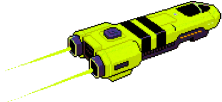Explore >> Select a destination

|
You are here |
njwildberger.com | ||
| | | | |
micromath.wordpress.com
|
|
| | | | | Continuing the theme of alternative approaches to teaching calculus, I take the liberty of posting a letter sent by Donald Knuth to to the Notices of the American Mathematical Society in March, 1998 (TeX file). Professor Anthony W. Knapp P O Box 333 East Setauket, NY 11733 Dear editor, I am pleased to see so... | |
| | | | |
www.jeremykun.com
|
|
| | | | | For those who aren't regular readers: as a followup to this post, there are four posts detailing the basic four methods of proof, with intentions to detail some more advanced proof techniques in the future. You can find them on this blog's primers page. Do you really want to get better at mathematics? Remember when you first learned how to program? I do. I spent two years experimenting with Java programs on my own in high school. | |
| | | | |
mathscholar.org
|
|
| | | | | [AI summary] The article discusses the intersection of science and philosophy, highlighting the importance of empirical evidence and the scientific method in advancing knowledge. It critiques postmodern science studies for lacking scientific rigor and credibility, referencing the Sokal hoax as a key example. The piece also touches on the contributions of non-Western societies to science and the need for diversity in the scientific community. Ultimately, it concludes that while philosophical reflection has value, it should not replace the empirical foundation of scientific research. | |
| | | | |
rationallyspeaking.blogspot.com
|
|
| | | by Massimo Pigliucci www.universaltheory.org For some time I have been noticing the emergence of a strange trinity of beliefs am... | ||




